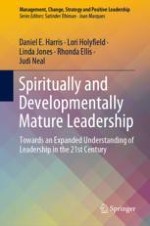The book goes beyond theory to offer tools and suggestions for developing emerging leaders. Inspired by the pioneering work of leadership scholar Andre Delbecq, this book points towards an expanded model of leadership that incorporates an active inner life, and posits that such fully human models of leadership will be essential to meet the profound challenges of the 21st Century. Without presuming to provide definitive answers, the text explores central questions such as: What is the added value of spiritual maturity to leadership? Would the integration of mature spirituality with well-developed intellectual and emotional capacities produce more beneficial leadership outcomes for organizations and individuals? What would a spiritually and developmentally mature emerging leader look like in 10 to 20 years? How do we prepare emerging leaders for the challenges they may face; and how do we model spiritually and developmentally mature leadership in ways that resonate with them?
Professor Andre Delbecq (1936-2016) of the University of Santa Clara created the heuristic of “spiritually and developmentally mature leaders” to encapsulate his observation that outstanding leaders often seemed to draw strength and wisdom from sources that are not typically studied or taught in leadership courses. Thirty scholars and practitioners accepted Delbecq’s heuristic as the starting point to explore spiritual components of leadership that do not easily lend themselves to quantification or clear causal links. The analysis of their disciplined engagement with the heuristic forms the foundation of an exploratory, fully human understanding of leadership. This analysis is supported by literature reviews, including an overview of Andre Delbecq’s relevant work. Ultimately, the authors call for further collaboration across disciplines and between research and practice to build on the conceptual constructs offered here, and, especially, to create pedagogies for the training of spiritually and developmentally mature leaders
